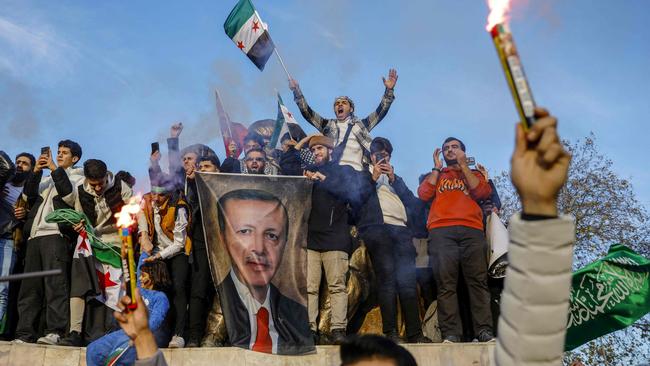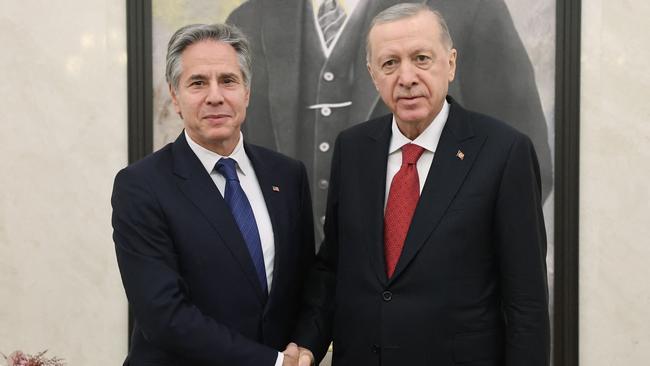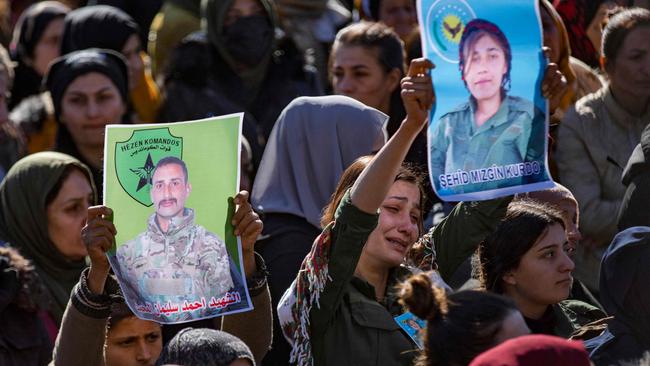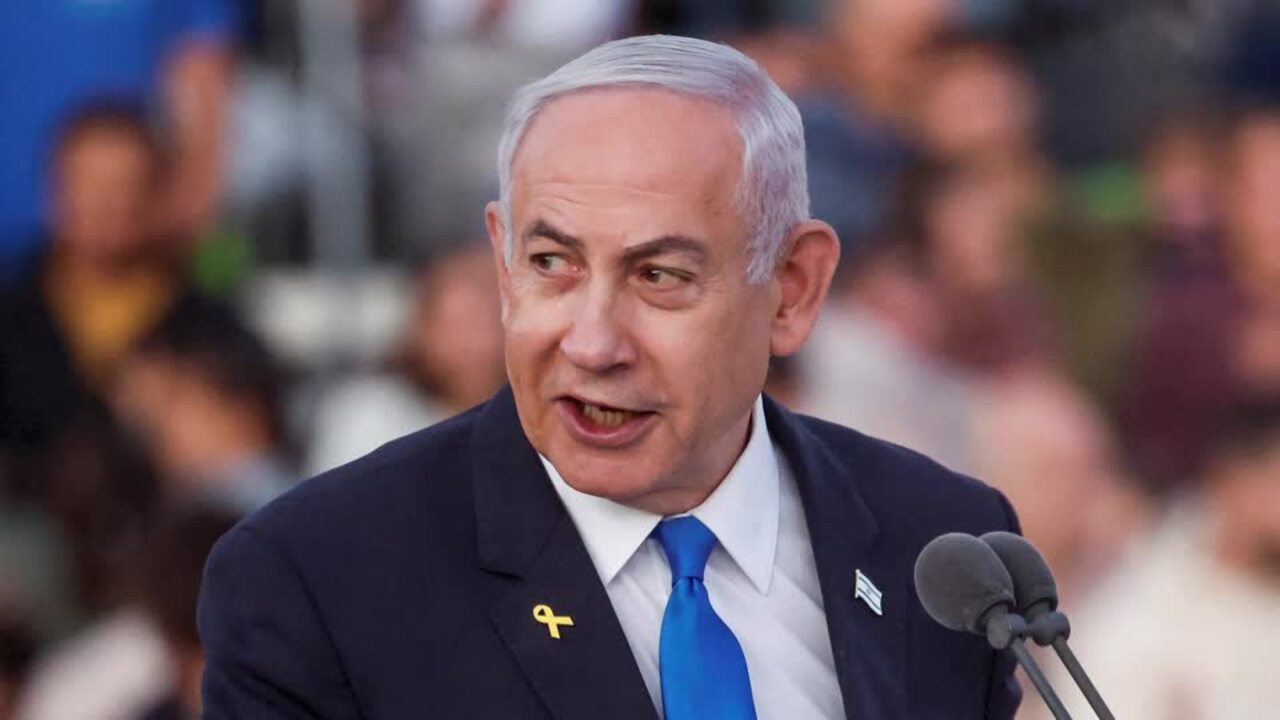Why Erdogan could end up the big winner in Syria’s upheaval
The Turkish president backed the right militants – and now juicy reconstruction contracts, the return of refugees and a chance to crush his Kurdish enemies are his potential prize.

In northern Syria the war has not ended. In fact, it intensified last week, as President Recep Tayyip Erdogan tries to exploit this moment to boost Turkish influence across the region, while pursuing his longstanding ambition of crushing the Kurd resistance.
“If any of the external actors who have long asserted claims over the future of Syria can be said to have ‘won’ following the overthrow of Assad, it is Turkey,” said Burcu Ozcelik from the Royal United Services Institute.
Having backed the victorious Islamist militant group Hayat Tahrir al-Sham (HTS) for years, Erdogan cannot contain his pleasure at this month’s dramatic collapse of the Syrian dictatorship, waxing lyrical last week: “If half our heart belongs to [the cities of southern Turkey], the other half belongs to Afrin, Aleppo, Hama, Homs and Damascus.”

Turkey’s leader loves to evoke the spirit of his country’s Ottoman sultans, who ruled Syria and much of the rest of the Middle East in past centuries. Today, says Ezgi Basaran, an Oxford-based academic and author of The New Spirit of Islamism, “he presents himself as the ultimate winner domestically, which really puts him in a different league from the opposition. He is truly enjoying his moment in the spotlight.”
While Erdogan publicly basks in his position as the apparent victor in Syria, privately many in Ankara are wondering how to stay on top of the fast-evolving situation there, and worry about the possibility of triumph turning to anarchy. What is paramount, as always, for Turkey’s veteran leader is seizing the domestic political advantage by insisting he is the only national leader capable of mastering the chaos.
So Turkey let it be known that it gave the green light last month for an offensive by HTS and the Turkish-backed militia called the Syrian National Army (SNA) to clear the way to Aleppo. But once this supposedly limited move unexpectedly touched off the regime’s collapse, and the HTS leadership shifted from the Turkish border to Damascus, the balance of power between them and Turkey changed.
As the politics of a new Syria play out in Damascus, Erdogan has taken advantage of the uncertainty to attack the Kurds. Using the SNA militia and elements of Turkey’s 10,000-strong military force deployed in Syria, they moved first against Tel Rifaat and last Monday captured Manbij, two important centres of the Kurdish-dominated area of northeastern Syria called Rojava.

If Erdogan could get his way, he would clear the border all the way eastwards to Iraq, strengthen the grip of pro-Turkish forces there, then invite the three million-plus Syrian refugees in his country to head home. Many Turks resent the presence of so many Syrians, so for years Erdogan has been trying to nudge them back over the border.
And just as his policy towards those displaced people is motivated by political calculation but gilded with florid phrases about brotherhood, so he eyes the prize in their newly liberated homeland with relish. “As a pragmatic neoliberal to his core, his main ambition for Syria right now is ‘reconstruction’,” says Basaran. “This would ensure his clientelist network – primarily composed of construction companies – secures lucrative contracts.”
Erdogan is a seasoned enough player of the regional political game to know that before he gets carried away by visions of fat rebuilding deals, emptied refugee camps and a crushed Kurdish militancy, there is much that could now go wrong. The web of competing ethnicities, loyalties and patrons makes it almost impossible to achieve a total victory; what pleases one local ally will provoke another.
America’s attitude will also be key to defining whether the objective of clearing away the Kurdish groups from the Turkish border can be met. The 900 or so US troops still in the area support a militia called the Syrian Democratic Forces (SDF), which is mainly Kurdish and is a key ally in the campaign against Islamic State.
US president-elect Donald Trump has said he will withdraw those US troops, which would leave the SDF, the people being hammered in recent days by Turkey, completely exposed. But longtime observers of the alphabet soup of Kurdish parties and militias will recall that in 2019 during his previous term, the president was also set to remove the remaining US forces.
The Pentagon made the case for keeping them there, because if the SDF went under, prisons holding thousands of Islamic State fighters and their families could be emptied, so Trump stopped his withdrawal. With signs that Islamic State is rallying after the fall of Bashar al-Assad, Trump will again face pressure to keep or even expand the US presence there. That in turn will deny Erdogan his clear run at the Kurds, and could spark tensions with America, as it did five years ago.

Even if thwarted from a complete victory, Erdogan will hope to put sufficient pressure on the SDF that the Kurds agree to a deal halting operations by the PKK, which is the faction operating inside Turkey. He will also seek to support and influence the HTS government in Damascus in ways that soothe intercommunal tensions, preventing a renewed, widespread civil war.
Turkey’s intelligence chief visited the Syrian capital on Thursday to start that work. Gonul Tol, a Washington-based policy expert writing in Foreign Affairs magazine, noted that Turkey “has the strongest channels of communication and history of working with the Islamist group now in charge in Damascus, positioning it to reap the benefits of the Assad regime’s demise”.
On Wednesday, Erdogan voiced the hope that his country’s Syrian “guests” would start going home in large numbers, “as stability grows, the number of voluntary returns will also increase”. But if their newly freed homeland descends into chaos and sectarianism, then he knows that not only could those refugees stay put, but their numbers might even grow.
One more factor outside Turkey’s control is Israel. Erdogan despises Benjamin Netanyahu and – channelling public outrage about the campaign in Gaza – has often used bellicose rhetoric. Now Turkey has criticised Israeli air strikes for knocking out Syria’s fighter jets, warships and other long-range weapons, potentially undermining the HTS government’s capabilities and ability to put down serious threats to its authority.
If there’s one thing that Turkey, Israel, the US and Iraq can agree on, it’s that the most likely immediate challenge will come from elements of Islamic State. The US has been bombing them for the past week, and visiting Turkey on Friday, Secretary of State Antony Blinken reminded his hosts that their countries “worked very hard and gave a lot over many years to ensure the elimination of the territorial caliphate of [Islamic State], to ensure that that threat doesn’t rear its head again, and it’s imperative that we keep at those efforts”.
For the moment, Turkey, which suffered many attacks at the hands of those extremists, is happy to lump them in with the Kurdish PKK movement as terrorists who threaten the vision of a peaceful future Syria. Thus Erdogan seeks to maintain his domestic image as a statesman and strategist wisely steering matters.
In truth, though, having pulled the trigger on last month’s rebel drive on Aleppo, Turkey’s leader helped set in train events that neither he nor anyone else can now predict. If it goes badly, he will blame Israel, America and anyone else he has to. But if democratic Syria thrives, then Turkey will reap the benefits.
The Times




To join the conversation, please log in. Don't have an account? Register
Join the conversation, you are commenting as Logout